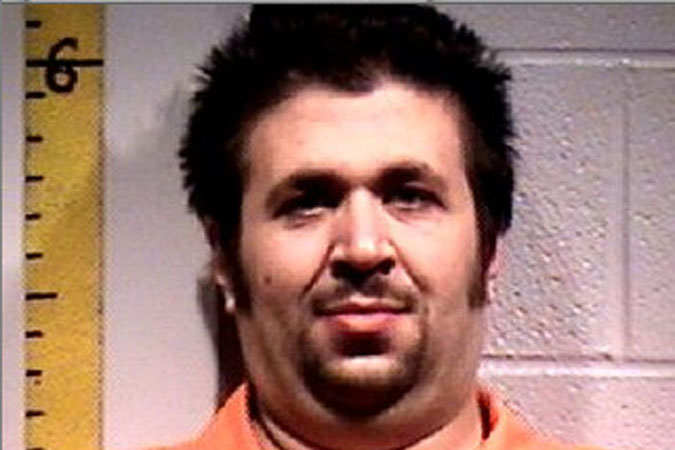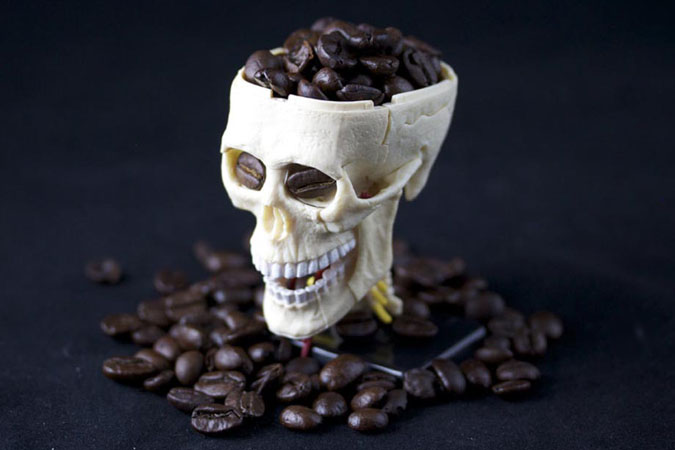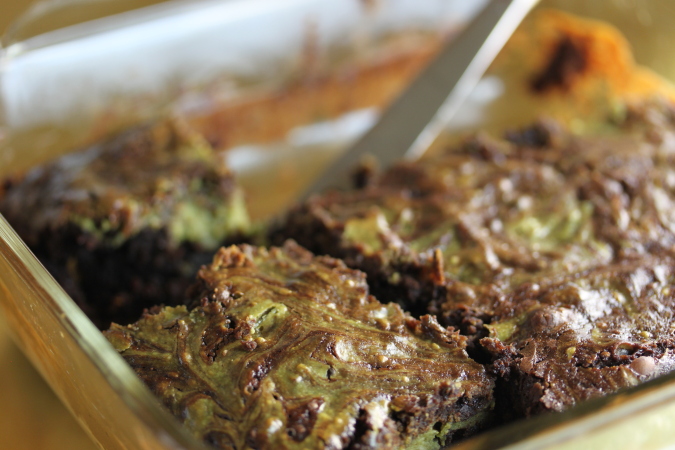True story: Excessive caffeine, a mental disorder, and no sleep lead to tragic consequences…
At 7:30 on the morning of December 8, 2009, Daniel Noble drove his gold Pontiac onto the University of Washington campus and without hesitation, plowed down a student in a crosswalk. One block later, Noble drove up onto the sidewalk and struck another young man. Again, Noble didn’t stop. He drove ahead and parked on the same road in the middle of campus, less than 200 yards from his second victim. Both men’s legs were broken. Noble had knocked them right out their shoes. One shoe was later found high in a tree.
Noble, wearing pajamas and slippers, stepped out of his car and began walking to a nearby building. The car was as shattered as his victims. The windshield had imploded, bearing a gaping hole and crackled veins on every surface. A dent the size of a person marred the roof. Hair and a small piece of scalp peeked out from the weather stripping on the driver’s side door. Officers later said it was a miracle no one else had been hurt.
Normal Guy Snaps
Noble stood 6’1″, and weighed 300 pounds. His dark brown hair, fashionably cropped in the upright, spiky style of the times, stood out in all directions. As officers approached him, they could hear Noble swearing and rambling incoherently. When they tried to arrest him, he became argumentative. A struggle ensued. One officer wrestled Noble to the ground. Noble fought back so fiercely, they had to taser him into submission.
Everyone, from his wife to his colleagues, was stunned by Noble’s behavior. He was a financial analyst for the University of Idaho Foundation and bore no history of mental instability or criminal behavior. He often started his day at 4:00 AM. He was a hard working, regular guy.
What could possibly cause Noble to go bonkers?
Was It the Caffeine or the Combination?
Caffeine was at the heart of the defense team’s reasoning. To great public surprise, they won the case. But caffeine alone wasn’t the whole story.
A number of witnesses had testified on Noble’s behalf. The barista at the local Starbucks said Noble was a normal, regular customer. But he’d shown up that fateful, near-freezing morning in pajamas, with no cell phone, and ordered two large coffees. Noble’s wife said he started to act peculiar two or three days before. He gradually got worse. He’d been working long hours in recent weeks to finish up the foundation’s budget, and wasn’t sleeping well at night. He drank coffee and energy drinks to keep going.
Medical experts diagnosed Noble as suffering from a rare form of bipolar disorder – triggered by heavy consumption of caffeine. In other words, Noble had suffered temporary insanity caused by caffeine psychosis. That diagnosis was key to Noble’s defense.
The judge dismissed the charges after concluding Noble was unable to form the mental intent to commit a crime. Noble was released but ordered to receive mental treatment, and not to drive or consume caffeine.
Victim Faces Long Recovery
Meanwhile, the injured students recovered, despite painful and long-lasting injuries.
The 19-year old freshman, Neil Waldbjorn, was hit especially hard. The accident “broke two bones in his right leg, two bones in his left arm, ripped muscles and tendons off the bone in his left leg, and damaged his lungs and spleen so badly that he spent six days in an intensive-care unit,” reported wenatcheeworld.com. Months later, he was still in physical therapy.
Hogun Hahm also suffered a broken leg, and soon after returned to his home in South Korea.
No doubt either victim felt Noble’s caffeine consumption was a justifiable defense, but even a normally benign drug like caffeine can have serious consequences, especially when mental stability is already compromised.
A Caffeine Buzz Gets Out of Control
Some would argue against the merits of Daniel Noble’s legal defense, but the case raises an important question about the world’s most widely consumed drug: Under what conditions can caffeine become a dangerous substance?
In Noble’s case, faulty neural wiring (bipolar disorder) in combination with the overuse of caffeine flipped his mental state upside down. He lost control, and didn’t even remember what he had done.
Caffeine is complex, and not everyone responds the same way, as this true story shows. Caffeine has many benefits when taken in low to moderate doses. But it’s still a potent drug and impacts the central nervous system, including the brain.
To find out how caffeine works, jump over to Caffeine Basics, my online book – it’s free and uploaded chapter-by-chapter at CaffeineAndYou.com.
[NOTE: Chapter 8 – Habit, Safety and Addiction is being updated with new information from the American Psychiatric Association’s just released Diagnostic and Statistical Manual of Mental Disorders (DSM-5). I’ll upload that chapter soon, as it relates directly to this Starbuck’s Defense post.]
***
So, what do you think? Was Noble’s sentence just, did the judge rule fairly? Was caffeine at the heart of his condition, or was this an excuse? Leave a comment and chime in.







